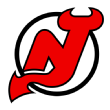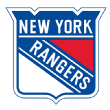NHL trade deadline: Winners and losers for 2023

The 2023 NHL trade season had it all: Contenders such as the Boston Bruins, New York Rangers, Toronto Maple Leafs and New Jersey Devils loaded up.
Star players were on the move, such asPatrick Kane, Ryan O'Reilly, Timo Meier and Jakob Chychrun.
There was lots of angst on social media among fans for trades that came together, or didn't.
Unfortunately, much of it occurred in the days and weeks leading up to Deadline Day -- which left not too much to get excited about in the final stretch on Friday.
Nevertheless, ESPN's Ryan S. Clark, Kristen Shilton and Greg Wyshynski have identified winners and losers of the trade deadline, including a wide range of players, teams and one former coach.
More: Trade grades
2022-23 trade tracker
Fantasy spin
Winner: Boston Bruins
The Bruins are the fastest team in NHL history to amass 100 points in a season. They're the best defensive team and second-best offensive team in the league, a veritable steamroller that could flatten everyone on their way to the Stanley Cup. So what did they do? They got better.
The "Dmitry Orr-lov" jokes have been flying since the Bruins acquired Dmitry Orlov from the Washington Capitals, giving them a physical veteran puck mover who is already making a difference. Arriving with him was Garnet Hathaway, a banger for the bottom six whom other teams had coveted. Not content with that -- and after losing Taylor Hall to injury on left wing -- Boston acquired Tyler Bertuzzi from the Red Wings, which just adds another playmaker to the mix.
The Bruins' moment is now, and they're not going to squander it. But that doesn't mean they can't think about the future, too: The Bruins ended the drama and signed star winger David Pastrnak to an eight-year contract extension worth $11.25 million annually. The hometown discounts might be over in Boston, but there's now a clear path ahead after the Patrice Bergeron Era ends. -- Wyshynski
Loser: Pittsburgh Penguins
The Pittsburgh Penguins aren't getting any younger. No, seriously.
Pittsburgh was already the NHL's oldest team before Friday's deadline. Then GM Ron Hextall targeted Mikael Granlund (31), Dmitry Kulikov (32) and Nick Bonino (34) to boost the Penguins' precarious hopes for a long playoff run.
Weird.
It's a great story to have Bonino back in the mix. He won back-to-back Stanley Cups with Pittsburgh in 2016 and 2017, after all. But Bonino is not the same player he was then, and while he is capable of adding a defensive punch for the Penguins' up front, that might not be enough to truly address their lack of depth scoring.
Ditto with Granlund. Can those two veteran additions make an impactful difference where the likes of 20-somethings Kasperi Kapanen (claimed on waivers by St. Louis), Brock McGinn (traded to San Jose in the Bonino deal) and Teddy Blueger (traded to Vegas) could not?
Yes, all three of aforementioned forwards have also had down seasons. But that's why Pittsburgh needed to improve on what it previously had in the lineup. After these latest moves, will the Penguins be able to keep up without adding speed and skill where it's been lacking throughout the season?
There are plenty of Eastern Conference teams who beefed up in preparation for what's ahead. Time will tell if Pittsburgh's experience-first experiment was the right one. -- Shilton
Winner: New Jersey Devils
Timo Meier is everything GM Tom Fitzgerald was chasing. He's the goal-scoring winger the roster lacked and a potential boon to the power play, which ranks 17th in the NHL. He's the physical presence the team needed in its top six. He brings scars from postseason-rivalry wars while with the San Jose Sharks, helping with the Devils' lack of playoff experience. (Forward Curtis Lazar, whom the Devils acquired from Vancouver, will also help in that category.)
There's some risk here, given that Meier arrives without a contract extension in place and a $10 million qualifying offer as a restricted free agent due this summer, though Fitzgerald believes Meier could be convinced to commit to Jersey. But the Devils acquired the most impactful winger in the trade market without giving up any of their true blue-chip assets such as Luke Hughes, Simon Nemec, Alexander Holtz or Dawson Mercer. The trade was a grind, but Fitzgerald got a player he coveted at a cost the team could manage. -- Wyshynski
Loser: Anaheim Ducks
Part of the conversation around teams near the bottom of the standings was how they could use their assets to add draft capital. It's something that the Blackhawks, Blue Jackets, Coyotes and Sharks were able to do this deadline. Or those middle-tier teams such as the Blues and Predators, who also added significant draft capital.
The Ducks, however, were not one of those teams. It appeared as if this deadline was a chance for the Ducks to make the most of their current situation. They had pending UFA defensemen such as John Klingberg, Dmitry Kulikov and Kevin Shattenkirkwho could be moved, while the second-line-center market made Adam Henrique an attractive option for teams seeking help down the middle.
Klingberg was moved at nearly the last minute and brought back a 2025 fourth-round pick, a minor-league defenseman and a prospect forward. The return for Kulikov brought back forward Brock McGinn and a 2024 third-round pick. Shattenkirk stayed with the team, whereas Henrique going to injured reserve prior to the deadline appears to have altered whatever the Ducks could have received for his services.
What might be the most damning aspect of all is that the Ducks did not make a trade until the last day of the deadline. They're still in the hunt to win the draft lottery, and they still have promising young talents in Jamie Drysdale, Troy Terry and Trevor Zegras who are leading the next wave. They also have nine picks ahead of this year's draft. It's just that the teams they are competing against to get back to contention via this year's draft have more picks -- the Blackhawks (11 picks), Coyotes (11), Sharks (12) -- than the Ducks' nine. -- Clark
Winner: Patrick Kane and the New York Rangers
Let's be honest: Patrick Kane always controlled his own destiny. No-movement clauses will do that.
But Kane truly seemed to manifest becoming a New York Ranger. In a league of players who often prioritize staying tight-lipped, Kane was outspoken about his disappointment that the Rangers targeted Vladimir Tarasenko ahead of the trade deadline. Such a move would, conceivably, leave no room for Kane to come on board. And there didn't seem to be another team the longtime Chicago Blackhawk wanted to join.
Well, fast forward a few weeks, and it was Showtime on Broadway.
Strange as it was to see Kane donning colors other than the Blackhawks' red and black, the pairing of player and club just made sense. Kane was reunited with his former Chicago linemate Artemi Panarin and went from a team with zero playoff chances to one that could easily compete for a Stanley Cup championship (even before he got there).
For the 34-year-old Kane, opportunities to chase a fourth Cup will only dwindle. And there's no saying where he might sign potentially the final multiyear deal of his career in July. Right now, Kane's focus can be on the present and helping New York possibly get over the hump into another Final.
Good for the player. Good for the team. -- Shilton
Loser: Jakob Chychrun hype
Chychrun requested a trade from the Coyotes in 2021. Arizona general manager Bill Armstrong knew he had a coveted player hitting the market -- especially given his contract -- and set his asking price high for him. Over the next 1 years, the Coyotes had talks with a variety of teams, but no one hit the target.
As the 2023 trade deadline grew closer, it looked like the Chychrun saga was finally going to reach its conclusion and the Coyotes would get their windfall. But instead of a windfall, some believe Arizona whiffed: They picked up a conditional first-round pick in 2023, a conditional second-round pick in 2024 and a second-round pick in 2026 from the Ottawa Senators for the 24-year-old defenseman.
No blue-chip prospects. No young burgeoning stars. Just more picks for a team that already is overflowing with them.
The problem for Armstrong was money. The Coyotes are in a cost-cutting mode during their rebuild and playing in a college hockey arena at Arizona State University, while they wait on a new building in Tempe. They had no desire to add contracts or retain money in a Chychrun deal. That took out teams such as the Bruins, Edmonton Oilers and the Los Angeles Kings, who were on the precipice of a Chychrun trade a few weeks back. Chychrun wouldn't end up on a Stanley Cup contender as had been expected. Instead, the focus turned to teams on the upswing such as the Buffalo Sabres and the Senators, who finally landed him.
The hype leading to this trade ran out of control. Chychrun was built up into an elite talent, rather than a player who could become one. The Coyotes' potential return on the trade reached mythic proportions. In the end, Arizona did as well as it could considering the cost constraints. But the whole thing felt like air escaping from a balloon in the end. -- Wyshynski
Winner: Nashville Predators
Determining whether or not the Predators were a playoff team or one that should consider at least a revamp was the big question going into the deadline. Predators GM David Poile -- or rather, outgoing Predators GM David Poile -- answered that question by making the sort of moves that should set up his heir apparent, Barry Trotz, in the years to come.
Nino Niederreiter, who has one more season left on his current contract with a $4 million cap hit, was the first to be moved. Poile then received five draft picks and Cal Foote from the Tampa Bay Lightning in exchange for Tanner Jeannot. Just for context, Jeannot received the same quantity of draft picks as Ryan O'Reilly and Vladimir Tarasenko did for the Blues in their combined trades that sent them to the Maple Leafs and Rangers, respectively.
But to be able to also move players with term on sizable cap hits such as Mattias Ekholm and Mikael Granlund when it was initially thought the offseason might be a better time to pull trades like that? It allowed the Predators to remove a grand total of $15 million in cap space off the books for next season. That's not even counting what they would have paid Jeannot, who is a pending RFA.
CapFriendly projects the Predators have $18.297 million in available cap space going into this upcoming offseason. They also have 13 picks for the 2023 draft. It's the sort of return that allows them to go in a few directions. Regardless of the path they pick, the Predators now have options that were not present even two weeks ago. -- Clark
Loser: Calgary Flames
One of the key challenges at the NHL trade deadline is self-reflection. There are elite teams and there are rebuilding teams, and then there's what one general manager told me was "muddy middle." It's up to those teams in the middle to clearly define who they are, and often that means coming to terms with not being a contender.
The Capitals, Nashville Predators and St. Louis Blues all came to that realization and are better off for it -- the Capitals in particular have the assets and cap space to change on the fly this offseason rather than rebuild.
The Flames, however, decided to reside in a hockey purgatory. They have a less than 50% chance of making the playoffs in the Western Conference. They're clearly diminished after the defections of Johnny Gaudreau and Matthew Tkachuk last summer. They could have moved some of their veterans --Tyler Toffoli and Elias Lindholm among them -- but chose to hold steady.
But if they're going to hold steady, shouldn't they upgrade? Because they didn't do that either. The Flaming 'C' is the muddy middle personified. -- Wyshynski
Winner: The chase for a playoff spot
Here's how life works for teams in the Eastern Conference wild-card hunt. On Monday, they might appear to be in pole position for the final wild-card place. By Saturday, they could be trailing and have three teams between them and whoever is the No. 8 seed. The West is no different -- except instead of the wild card, it's the whole conference that can be rearranged within a week.
We saw teams like the Islanders get ahead of the deadline madness early by getting Bo Horvat, which set the tone for what followed. There are seven teams in the East that are within seven points of the final wild-card spot. Some teams such as the Sabres and Senators used the trade deadline to make the sort of acquisitions they feel can help them reach the postseason. Other teams like the Capitals might stay in the hunt but also made the trades that show they have an eye on the future. And then there were teams like the cap-strapped Panthers that must try to make it work with what they have.
As for the West? There is a chance that the eight teams currently in playoff spots might be the eight teams that make the postseason. But the Flames are five points adrift of the final wild-card spot, which means they could make a push to get in or get left out. Even then, the top eight teams are separated by seven points. Seven of those teams made a move within the final week of the deadline they believe can help them remain in contention for a spot and perhaps go further once the postseason actually begins. -- Clark
Loser: Vancouver Canucks
Conversations are going to happen when a team trades for a 25-year-old, top-four defenseman with the belief it makes them better for both now and in the future. But when that trade means parting with a first-round pick that was thought to be the centerpiece in trading your captain earlier that season?
And it means you have less than $1 million in cap space ahead of next season?
Yeah, people talk about those things too.
The Canucks' decision to trade for Filip Hronek has continued the referendum on how the franchise plans on arriving at their final destination of a brighter future. It's not to say Hronek can't be part of that future. But the cost of getting him does raise questions.
In fairness, the Canucks did get younger beyond trading for Hronek. They added more youth by getting Anthony Beauvillier, Vitali Kravtsov and Aatu Raty in other deals. Beauvillier has one more year left at $4.15 million after this season. Kravtsov is a pending RFA while Raty has two years left on his entry-level contract.
Where it gets complicated is balancing the promise of Hronek against the question of whether the Canucks were in the strongest position to make the move to get him at this time. Hronek has one more year left on his contract after this season at $4.4 million. CapFriendly projects the Canucks will have $894,583 in available cap space ahead of next season, and that's with Bo Horvat's retained salary along with the Braden Holtby and Jake Virtanen buyouts coming off the books.
The argument can be had that getting Hronek would be looked at differently if the Canucks did not have their current financial constraints. After all, they still got a top-four defenseman who appears to be a major part of their future. A future that is led by Quinn Hughes, Elias Pettersson and the possibility that their own first-rounder could see them win the draft lottery and take the presumed No. 1 pick in north Vancouver native Connor Bedard.
But the question still remains: With their current cap woes, was the decision to get Hronek a move the Canucks were ready to make right now? --Clark
Winner: Bruce Boudreau
It's been a tough year for Bruce Boudreau the coach.
But Bruce Boudreau the new media darling is thriving.
The Vancouver Canucks dragged Boudreau along for half a season before mercifully firing him in mid-January. The veteran bench boss took his talents to TSN for their trade deadline show and was the perfect acquisition on a slow(ish) news day around the league.
Who needs trades to announce when Boudreau has stories to tell, or pep talks to give? And who better to discuss deals that do come down the pipe than someone who has been around the league for decades as a player and coach?
Boudreau is a magnetic personality; it makes sense why he's always been so popular with players. To see him shine in a different forum after such a difficult, uncertain fall and winter was touching. A (happier) ending for one of the NHL's good ones.
Loser: James van Riemsdyk
We frequently hear of trades that come together at the 11th hour.
This is one that fell spectacularly apart before the finish line.
Detroit was this close to acquiring James van Riemsdyk from Philadelphia, a late-breaking development that spread like wildfire through hockey's insiders. And then, almost as suddenly, the deal was off. van Riemsdyk would remain with the Flyers.
Now, that's tough for a couple reasons.
For van Riemsdyk, it means staying in Philadelphia and not seeing the playoffs this season instead of going to the Red Wings, who still have a fighting chance.
For the Flyers, it's a miss on moving a trade asset who can now simply walk away for nothing as an unrestricted free agent this summer.
For the Red Wings, it meant not adding experienced forward depth that could conceivably help on that aforementioned postseason push.
Talk about a bad breakdown.
It's hard not to feel for van Riemsdyk from a human perspective, too. After long weeks of hearing your name in trade rumors and answering questions about a future you can't control, it finally looked like the wheels were in motion ... until they weren't. Adding insult to injury, Flyers GM Chuck Fletcher declared in his news conference that he didn't get a single offer for van Riemsdyk until 1:40 p.m. -- just 1 hour and 20 minutes before the deadline. That stings, too.
At least van Riemsdyk will have a say in his next destination on July 1. -- Shilton
Related Video
Related Topics
- SPORTS
- ESPN
- CHICAGO BLACKHAWKS
- EDMONTON OILERS
- NEW JERSEY-DEVILS
- ARIZONA COYOTES
- PHILADELPHIA FLYERS
- LOS ANGELES-KINGS
- MINNESOTA WILD
- TORONTO MAPLE-LEAFS
- VEGAS GOLDEN-KNIGHTS
- WASHINGTON CAPITALS
- EASTERN CONF-ALL-STARS
- TEAM CHARA
- PITTSBURGH PENGUINS
- WESTERN CONF-ALL-STARS
- NASHVILLE PREDATORS
- CAROLINA HURRICANES
- SEATTLE KRAKEN
- WINNIPEG JETS
- ANAHEIM DUCKS
- TEAM LIDSTROM
- ST LOUIS-BLUES
- NEW YORK-RANGERS
- COLORADO AVALANCHE
- BUFFALO SABRES
- OTTAWA SENATORS
- COLUMBUS BLUE-JACKETS
- SAN JOSE-SHARKS
- LIST
- FLORIDA PANTHERS
- TEAM STAAL
- DETROIT RED-WINGS
- NEW YORK-ISLANDERS
- TEAM ALFREDSSON
- VANCOUVER CANUCKS
- NHL
- DAILY
- TEAM TOEWS
- TAMPA BAY-LIGHTNING
- BOSTON BRUINS
- DALLAS STARS
- MONTREAL CANADIENS
- CALGARY FLAMES
- TEAM FOLIGNO















